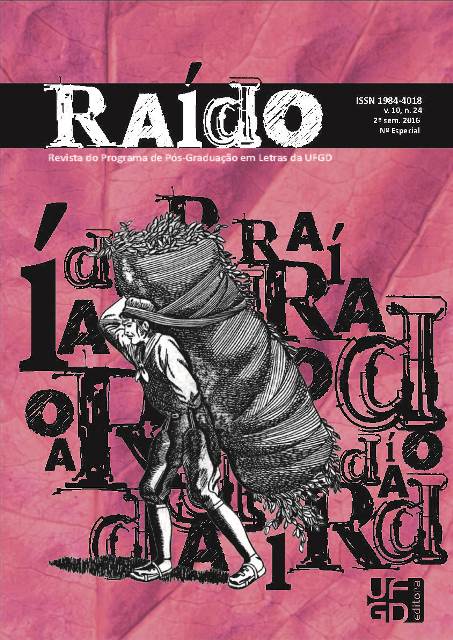A lexicologic study from a socio-historical basis of the lexical forms “asylum for the elderly” and “nursing home”
Keywords:
Social and historical lexicology, lexical change, language use.Abstract
On the assumption that language constitutes a social and historical
phenomenon, this study aims to analyze through a social and historical approach of the lexis, the lexical forms “homes for elderly” and “retirement home”. The corpora in which we aim to analyze are composed of 20 texts and 46 respectively, available at an online acquis of Jornal do Brasil — RJ. The period of analysis chosen for this paper corresponds to the beginning of the twentieth century, between 1900 and 2005. Based on Cambraia’s (2013) theoretical and methodological foundations, this work intends to analyze the texts included in two synchronic cuts: from 1901 up to 2005, in which we discuss the occurrence of the competitor forms “home for elderly” and “retirement home”, verifying in which extent they appear in an opposite frequency standard, as well as analyzing the intralinguistic and extralinguistic aspects that contributed in order to have speakers using a new word to an existent one. This way, we can realize that the lexical change occurred and one of the main reasons for that were important extralinguistic aspects, such as the creation of Geriatrics as a medical specialty and scientific knowledge.
Downloads
References
ASILO. In: Dicionário Aurélio. Disponível em:<http://www.dicionariodoaurelio.com/Asilo.html>. Acesso em: 20 de jun. 2014.
BALDINGER, K. Teoría semántica: hacia una semántica moderna. Madrid: Alcalá, 1970.
CAMARANO, A. A. Envelhecimento da população brasileira: uma contribuição demográfica. Texto para discussão n.858, Rio de Janeiro: IPEA, 2002.
CAMBRAIA, C. N. Da lexicologia social a uma lexicologia sócio-histórica: caminhos possíveis. Revista de Estudos da Linguagem, Belo Horizonte, v. 21, n. 1, p. 157-188, jan./jun. 2013.
CHAIMOWICZ, F. A saúde dos idosos brasileiros às vésperas do século XXI: problemas, projeções e alternativas. Revista de Saúde Pública, v.31, n.2, p.184-200, abr. 1997.
GROISMAN, D. Asilos de Velhos: passado e presente. Estudos interdisciplinares do envelhecimento. Porto Alegre, v.2, p.67-87, 1999.
MATORÉ, G. La lexicologie sociale. L´Information Littéraire, Paris, n. 2, mar./abr. 1949.
Downloads
Published
How to Cite
Issue
Section
License
Os autores devem aceitar as normas de publicação ao submeterem a revista, bem como, concordam com os seguintes termos:
(a) O Conselho Editorial se reserva ao direito de efetuar, nos originais, alterações da Língua portuguesa para se manter o padrão culto da língua, respeitando, porém, o estilo dos autores.
(b) Autores mantém os direitos autorais e concedem à revista o direito de primeira publicação, com o trabalho simultaneamente licenciado sob a Atribuição-NãoComercial-CompartilhaIgual 3.0 Brasil (CC BY-NC-SA 3.0 BR) que permite: Compartilhar — copiar e redistribuir o material em qualquer suporte ou formato e Adaptar — remixar, transformar, e criar a partir do material. A CC BY-NC-SA 3.0 BR considera os termos seguintes:
- Atribuição — Você deve dar o crédito apropriado, prover um link para a licença e indicar se mudanças foram feitas. Você deve fazê-lo em qualquer circunstância razoável, mas de nenhuma maneira que sugira que o licenciante apoia você ou o seu uso.
- NãoComercial — Você não pode usar o material para fins comerciais.
- CompartilhaIgual — Se você remixar, transformar, ou criar a partir do material, tem de distribuir as suas contribuições sob a mesma licença que o original.
- Sem restrições adicionais — Você não pode aplicar termos jurídicos ou medidas de caráter tecnológico que restrinjam legalmente outros de fazerem algo que a licença permita.



